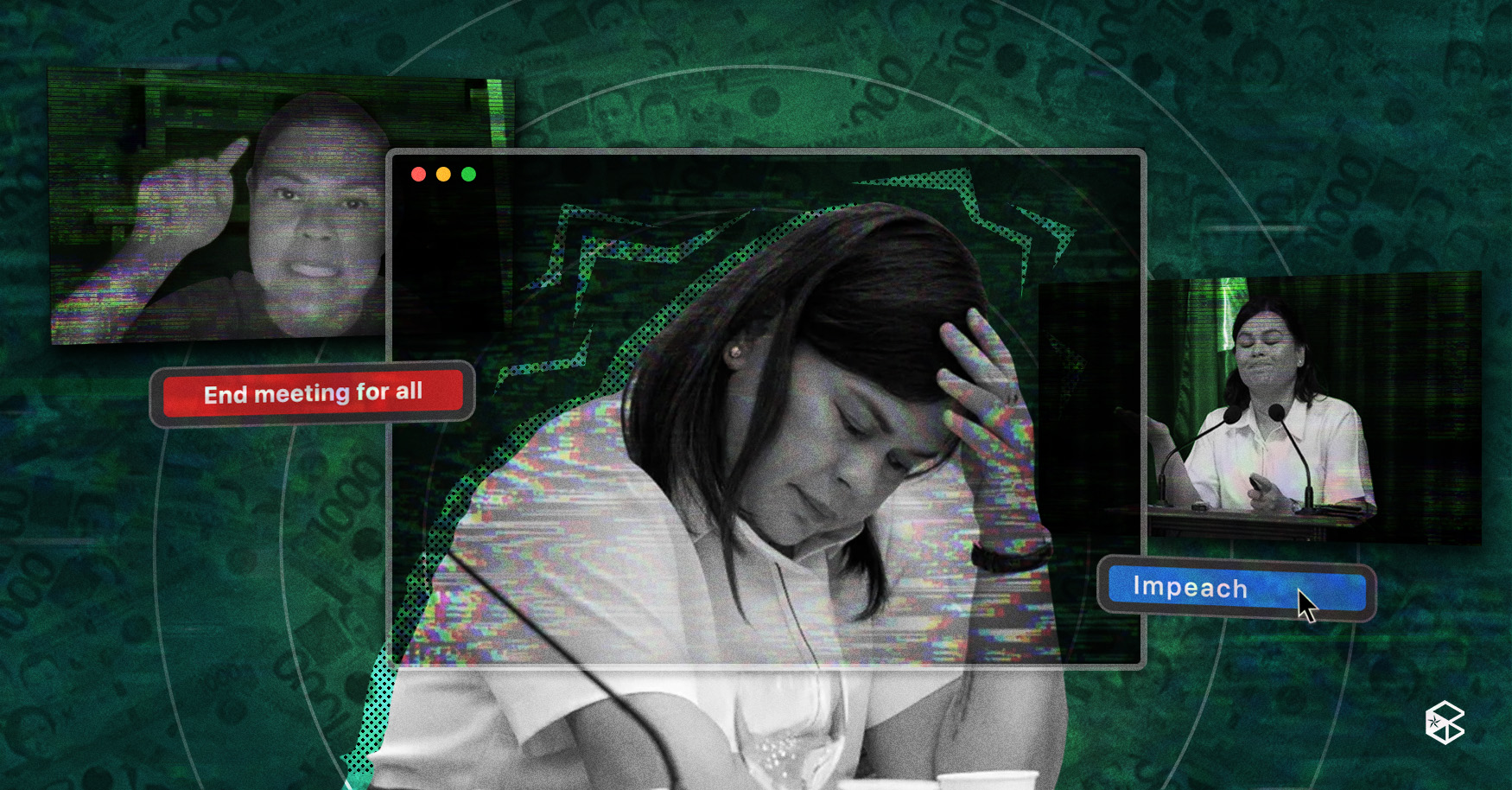On Dec. 2, 2024, a coalition filed an impeachment complaint against Vice President Sara Duterte, covering 24 alleged crimes, including the threat made towards President Ferdinand “Bongbong” Marcos Jr. (PBBM). Not long after, a second impeachment complaint was once again filed on Dec. 4, citing betrayal of public trust as the only grounds. This is a significant event in Philippine history, given the rarity of impeachment proceedings against a sitting Vice President.
In 2022, the Office of the Vice President (OVP) under Duterte was allotted a budget of PHP 125 million in confidential funds. According to Philstar, reports revealed that this budget was spent within only a span of 11 days, leading to questions about its authorization and legitimacy. Additionally, the Department of Education (DepEd) spent PHP 112.5 million of confidential funds in 2023. Concerns arose when the DepEd’s finance unit showed no knowledge about how these funds were utilized.
Confidential funds are budget allocations exempt from standard auditing processes to protect the confidentiality of the operations they are used for. The rapid disbursement of funds and lack of transparency have led to extreme scrutiny. While some called for full transparency, Duterte’s allies defended her need for operational transparency, escalating the controversy that later on led to the call for her impeachment.
Following the controversy, the House lawmakers probed the departments on how these funds were utilized. Alarmingly, testimonies revealed possible bribery through envelope distributions from higher authorities, breaching public trust.
VP Duterte has continuously denied any misuse of the confidential funds, claiming that the inquiries in the hearings are politically motivated attacks against her. However, House Speaker Martin Romualdez denied the allegation of the Vice President that he is plotting to kill her, claiming that it was Duterte’s “desperate attempt” to divert attention from the controversy. VP Duterte’s dismissive conduct during the hearings drew sharp rebukes from representatives who saw it as an attempt to evade accountability.
Her lack of transparency in the hearings highlights the failure of public officials to provide a clear and justifiable answer for utilizing taxpayers’ money, as well as undermines the integrity of government operations.
On Nov. 22, after OVP Chief of Staff, Zuleika Lopez was transferred to the Women’s Correctional Facility, she fell ill and was sent to Veterans Memorial Medical Center, where the Vice President personally accompanied her. This prompted the press conference later on where Lopez claimed that the House committee’s decision to remove her from the house detention facility was a threat to her life, adding the confiscation of her and her assistant’s phone.
However, House Secretary General Reginald Velasco and House Sergeant-at-Arms retired police Maj. Gen. Napoleon Taas debunked Lopez’s claims, showing a video to prove that the treatment of Lopez adhered to due process. The press conference took a dramatic turn when the Vice President joined the conference and lashed out at Pres. Marcos, First Lady Liza Araneta-Marcos, and Romualdez.
VP Duterte used foul words and alarming phrases and revealed that if ever she was killed, she already has an assassin tasked out to kill the Marcos couple and Romualdez. Such behavior from a high-ranking official does not only damage public trust within the country, but also damages the Philippines’ reputation abroad.
Impeachment complaints
VP Duterte’s first impeachment complaint was filed on Nov. 22, endorsed by Akbayan Party-list Rep. Perci Cendaña with four grounds, including her alleged direct involvement in extrajudicial killings during her time as a mayor in Davao City, as well as her threats. It was filed by leaders of religious groups, sectoral representatives, and relatives killed amidst the drug war under the administration of former President Rodrigo Roa Duterte (FPRRD). The complainants were accompanied by former senator Leila de Lima.
On Dec. 4, another impeachment complaint was filed, endorsed by Makabayan lawmakers France Castro, Arlene Brosas, and Raoul Manuel. With over 70 signatories, this complaint focused on betrayal of public trust, a ground for impeachment under the 1987 constitution.
However, making the impeachment complaints succeed in the Senate is a challenge for various reasons. First, PBBM instructed his allies not to file impeachment complaints against the Vice President. Second, the endorsers of the two impeachment complaints belong to the minority. Third, there is limited time for the process to progress before the May 2025 midterm elections and the legislative holiday breaks. Lastly, the current Congress is dominated by administration allies, making it more challenging to secure support for impeachment.
Additionally, the 1987 Constitution stipulates that only one impeachment complaint can proceed within a year. As a result, the House of Representatives must decide which of these complaints to prioritize and potentially escalate to the Senate. Despite the challenges faced, endorsers are determined to pursue VP Duterte’s impeachment.
“If not now, when? We believe that if there’s a will, there’s a way,” Cendaña stated.
If the impeachment complaints are recognized, it will serve as a precedent-setting moment for assuring that no public official, no matter the position, is above scrutiny and the law. However, the challenges in pursuing the impeachment complaint highlight broader issues that often hinder accountability in Philippine politics. The outcome of this process could either reinforce or weaken the public's trust in democratic mechanisms, depending on how fairly and transparently it unfolds.
The urgent need for systemic reforms and strict oversight of public funds against the misuse of taxpayer money has always been clear. The lack of action and failure to demand meaningful change reflect a broader issue of complacency, with many still failing to recognize the necessity for true accountability in governance.
While the challenges in pursuing impeachment do favor the Vice President, Filipinos should not turn a blind eye to the issues of corruption and betrayal of public trust, not anymore. The Philippines is a democratic country, therefore, the leaders serve the people, not the other way around. The nation must decide whether this moment becomes a turning point for accountability or another missed opportunity for reform.


